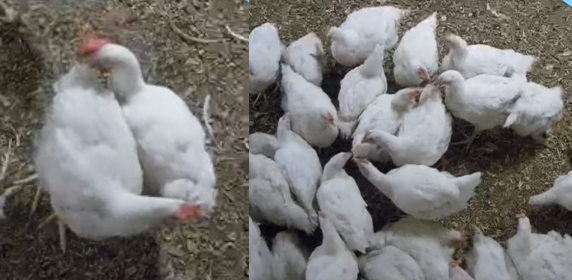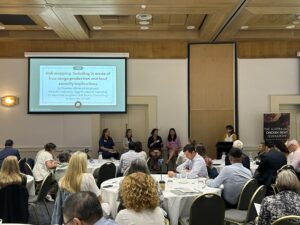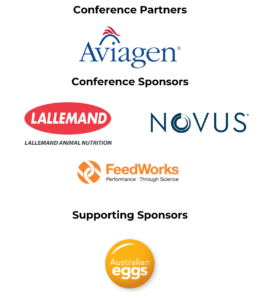Why Do Meat Chicken Breeders Feather Lick?
A new study conducted by a team of researchers from the University of Melbourne, South Australian Research and Development Institute and Curtin University has shed light on a perplexing behaviour observed in meat chicken breeders: feather licking. This behaviour, rarely mentioned in scientific literature, has raised concerns within the poultry industry as it is believed to be a precursor to more severe issues such as feather pecking, cannibalism, and increased risk of injury during mating.
Understanding Feather Licking Behavior
The project, led by Dr Peta Taylor from the Animal Welfare Science Centre at the University of Melbourne and Dr Carolyn DeKoning from SARDI, together with Professor Paul Hemsworth and Dr Natalie Morgan, aimed to understand the feather-licking behaviour and explore how environmental enrichment could mitigate its occurrence or redirect it away from conspecifics. The researchers surveyed industry experts and conducted on-farm behavioural observations of breeder chickens to achieve these aims.
Survey Insights and Concerns
The survey results showed that 94.1% of participants had observed feather-licking behaviour among their flocks. However, the perceptions of this behaviour varied. Some viewed it as “normal,” while others expressed concerns about mating injuries, increased feather pecking and cannibalism, and psychological stress indicated by repetitive and seemingly functionless behaviour.
The terms “feather licking,” “feather sucking,” “feather eating,” and “feather pecking” were used interchangeably, leading to confusion about the behaviour’s causes and implications. The most reported factors that were perceived as contributing to feather licking were boredom (52.9%), nutritional deficiencies (47.1%), and feed restriction (41.2%). Additionally, over 80% of respondents agreed that stress plays a significant role in feather-licking.
On-farm Behavioural Observations
Behavioural observations conducted across four farms and eight flocks identified various feather-directed behaviours, which differed between flocks, ages, and times of day. Notably, feather eating, feather pecking, and feather licking were found to be distinct behaviours.
Feather licking was identified and involved a bird gently combing another bird’s feather in a slow, sweeping motion, keeping the feather in its mouth for 1 – 4 seconds before releasing it. The feather was not removed or eaten. This behaviour was predominantly observed in production flocks during resting periods.
Another behaviour that aligned with producer descriptions of feather licking in rearing was identified, however, presented differently than feather licking. This behaviour was Gentle Repetitive Feather Pecking and involved a bird taking a feather (its own or another bird’s) in its beak for one second before releasing it. This was repeated rapidly, forming a sequence of consistent pecking. The behaviour often targets the tip of the tail feathers, and the feather is not removed or eaten. This abnormal behaviour was predominantly observed in one cockerel-rearing flock during active periods.
Next Steps and Future Research
Although industry experts often conflated feather licking with feather eating and feather pecking, the study found these behaviours to be distinct in commercial flocks. Each behaviour likely has different underlying causes, such as nutritional deficiencies or stress, but can lead to similar negative outcomes, such as cannibalism.
The researchers suggest that epidemiological approaches are needed to better understand the risk factors associated with outbreaks of each behaviour. Moreover, effective environmental enrichment could be beneficial in redirecting gentle repetitive pecking behaviours to appropriate stimuli, thereby reducing potential damage to feather quality.
Future research should aim to identify and implement effective environmental enrichment strategies to reduce abnormal behaviours in meat chicken breeder flocks, ultimately improving animal welfare and productivity in the poultry industry.
Contact Information: Dr. Peta Taylor
Animal Welfare Science Centre, School of Agriculture, Food and Ecosystem Sciences at the University of Melbourne





